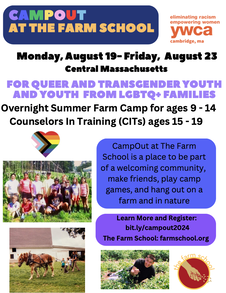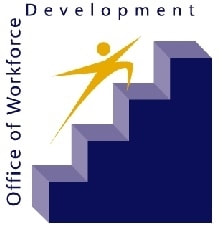|
At our February Network Meeting, we focused on equity and access in out-of-school (OST) opportunities in Cambridge. Our main goal, as always, is to ensure that all young people and families have fair access to these opportunities. We wanted to spend time being explicit with our networks in talking about WHAT that looks like, HOW we do it (and you do it, within your contexts) and WHO we are talking about when we reference ‘priority families’ in Cambridge. During the meeting, we discussed the changing demographics of Cambridge, specifically income inequality over the past four decades, and shared snapshots from some recent reports (like the Cambridge Community Foundations’ "Equity & Innovation Cities: The Case of Cambridge" report) that paint a picture of the city that is surprising even to folks who’ve been in Cambridge a long time. In the connection groups, participants had meaningful conversations about what this income inequality and changing demographics looks like in their K-5 and 6-8 programs. This helped us understand how this issue affects our community and our own spheres of influence. We also heard stories from families and students, and shared demographic data and examples from our summer follow-up initiative, where we work with schools and community members to assemble a list of priority young people and work individually with them to get them registered for summer programs. These highlighted the HOW: how we try to ensure equal access (and overcome the barriers involved) to high-quality out-of-school opportunities for everyone, from our team’s vantage point in the schools and across community programs. Weren’t able to make the meeting? Check out the rest of the slides here! Please get in touch with us if you have questions and want to talk more - as always, we want and need everyone across our networks to be part of the effort to challenge inequity, and all have roles and actions (large and small) that can be part of the solution. Feel free to use the data shared here (the demographic data and the Cambridge OST data) with sources cited (see slides) as we continue the long term work of overcoming barriers that affect the future of young people. Community AnnouncementsShilpa (Cambridge Camping): Summer camp registration for Adventure Day Camp and Daybreak Day Camp is now open. There is also a low cost cooking program available! Cambridge Camping offers payment plans. To learn more visit their website.  Puja (Cambridge YWCA): There are two YWCA summer programs happening this year: CampOUT at The Farm School: August 19th-23rd Overnight/Sleepaway Camp The Farm School is an educational farm that hosts weekly programs for youth from many different schools nationwide. Learn more about The Farm School at farmschool.org. The CampOUT week is a sleepaway camp for trans, non-binary, and queer teens who are 9-14 years old. (Teens 15-19 are welcome to apply to be counselors-in-training!) And young people from queer families. For questions, please email Emmy at [email protected]. Learn more and register online. Consent Camp Consent Camp is a NO-COST summer program for Cambridge students entering grades 7th-9th and 4th-6th. Camp participants will learn about consent education and activism. Campers will be mentored by trained high school peer leaders and supervised by expert adult educators. Participants will receive a Peer Education certificate by the end of camp. Learn more and register here for 7th-9th and here for 4th-6th. Shameka (New School of Music): New School of Music is hosting a Chorus Open House on February 10th. It’s free and open to the public! Emily Meyer (Cambridge Public Library): Cambridge Public Library is hosting February Vacation Week programs. Check their calendar here to see what’s available!  Nina (Office of Workforce Development): MSYEP Worksite applications are now available! MSYEP offers Cambridge teens the opportunity to work with non-profits or government agencies for 6 weeks during the summer. Teens work 20 hours per week from July 1-August 9. There are two ways of providing opportunities for youth to work with your organization: Traditional Worksites: MSYEP provides all youth wages and an MSYEP Liaison who will monitor youths’ experience and provide support to the teens and to you. If you would like to host one or more young people at your workplace as a traditional worksite, please complete only the MSYEP Worksite Application. Summer Work and Learning Sites: Expand the scope of MSYEP by including an educational enrichment component. SWL programs are an opportunity for you to design and manage an educational, work-based learning project specific to your organization’s mission and needs. Funds are available to cover personnel costs related to the program and supplies. As with traditional worksites, MSYEP pays the wages for all teens assigned and provides the support of an MSYEP Liaison. If you’d like to apply as an SWL site, please complete the MSYEP Worksite Application AND the RFP Proposal Form. Both forms are due on Wednesday, March 20, 2024. Questions? Contact George Hinds, 617-349-6268 or [email protected]
0 Comments
|
AuthorWrite something about yourself. No need to be fancy, just an overview. Archives
April 2024
Categories |
|
Looking for something?
|
|
